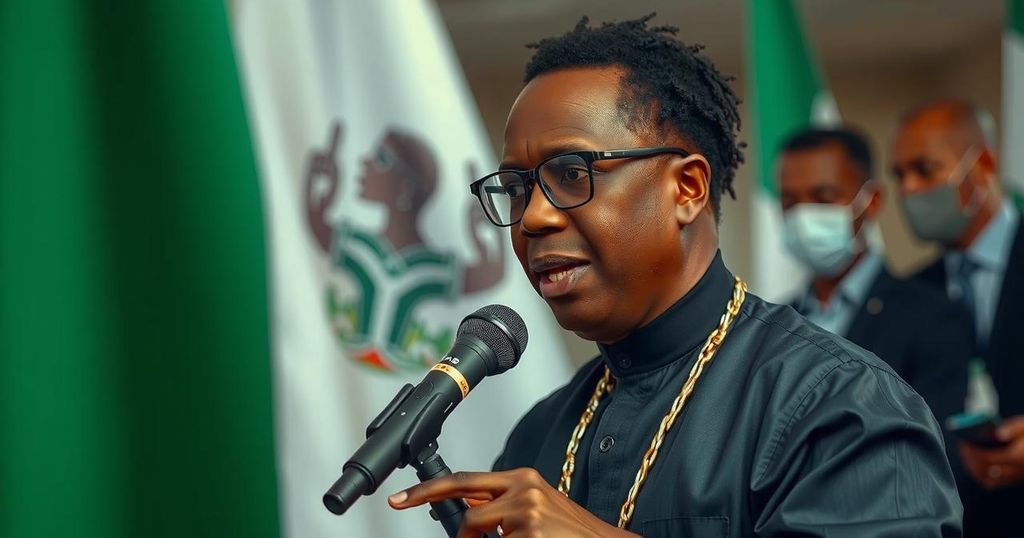President Bola Tinubu has ordered the release of minors charged following August protests against the rising cost of living. The Information Minister announced that treason charges would be dropped amid public outrage over the government’s treatment of young protesters. The protests highlighted the severe economic hardship experienced by Nigerians, prompting calls for improved living conditions and job opportunities.
Nigerian President Bola Tinubu has mandated the immediate release of all minors detained following protests that erupted in August due to the escalating cost of living. The Information Minister, Mohammed Idris, confirmed that the treason charges against these minors, who numbered at least thirty, would be dropped. The decision comes after public outrage over the government’s treatment of youth involved in the protests against economic hardship, where concerns were raised about justice and human rights deficiencies.
These protests, which occurred across major cities such as Abuja and Lagos, were a response to severe economic reforms that have resulted in high inflation rates, marking one of the worst cost-of-living crises in a generation. The demonstrations also reflected widespread frustration among the youth regarding limited employment opportunities and living conditions. Human rights organization Amnesty International reported that approximately 22 individuals lost their lives during interactions with security forces amid these protests.
The recent court appearance of the minors charged with severe offenses like treason led to a significant backlash, prompting calls from various rights groups for their release. President Tinubu has expressed his intention to implement necessary economic changes to stabilize the nation but faces the challenge of balancing reforms with public discontent. This situation highlights the broader issues facing Nigeria, including economic instability and pervasive insecurity, which have severely impacted livelihoods, especially in the northern regions plagued by kidnappings.
In late August 2023, Nigeria experienced widespread protests as citizens expressed their discontent over the surging cost of living. The protests drew young people who demanded better economic opportunities and jobs, largely fueled by a backdrop of rampant inflation and economic reforms. These demonstrations were marred by violence and led to numerous arrests, including the detention of minors, culminating in a significant political and social crisis that has garnered international attention and concern over human rights violations.
The decision by President Tinubu to release detained minors and drop charges against them underscores the government’s acknowledgment of public dissent and the critical need for reforms to address the ongoing economic struggles facing Nigeria. Amidst widespread insecurity and a financial crisis, the administration’s approach to the youth’s grievances could significantly influence the nation’s political landscape moving forward.
Original Source: www.aljazeera.com






